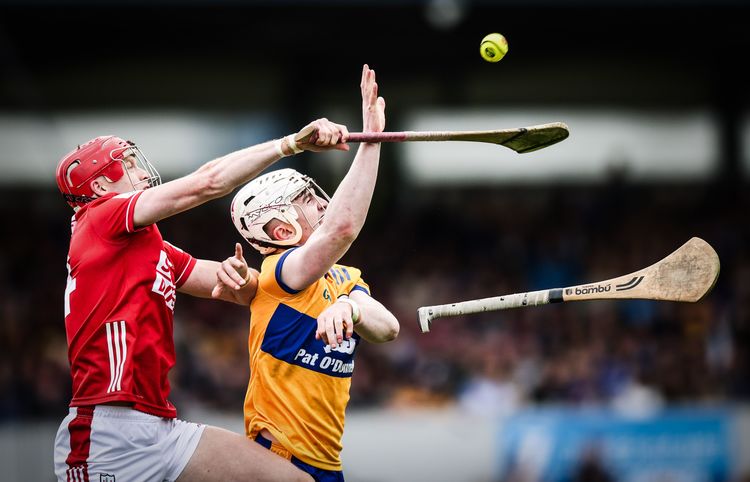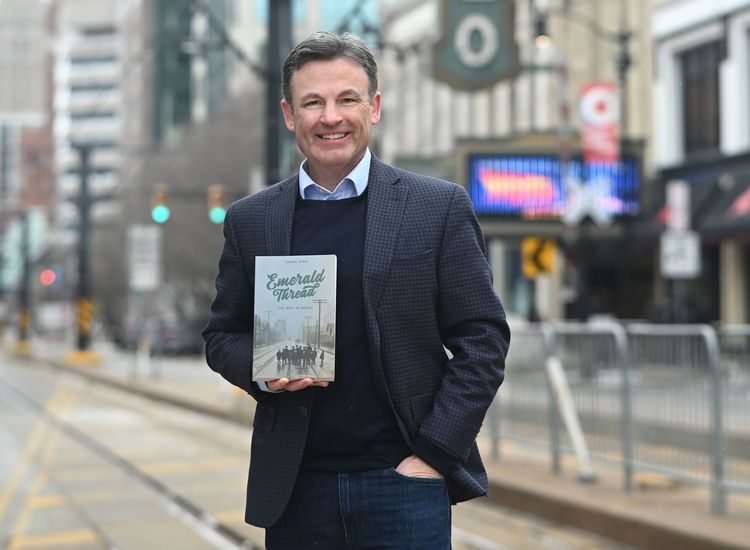The cover of the new biography of Gerry Conlon
By Ray O’Hanlon
Gerry Conlon’s life story has already been aired on the big screen.
But movies skip a lot that books do not, hence the transatlantic interest in a new book “In the Name of the Son,” which tells the story of Conlon, the early years, the years in prison, the years of freedom and addiction, all sixty years of Gerry Conlon’s life.
Conlon, a member of the Guildford 4, died in June, 2014 but his life’s story did not and is now presented anew by Belfast author Richard O’Rawe and actor Johnny Depp, who writes a foreword in a book that is available to U.S. readers on Amazon.
As the release for the book puts it: “London, 19 October 1989. An electrified young man, with eyes wild and a clenched fist, bursts out of the Old Bailey and declares his innocence to the world. Gerry Conlon has just won his appeal for the 1974 Guildford pub bombing. After fifteen years in prison, freedom beckons. Or does it?”
Following his release, Conlon received close to one million pounds in compensation from the British government. There were movie and book deals.
As the release further puts it: “He ran in the same circles as Johnny Depp, Daniel Day-Lewis, and Shane MacGowan.
“Conlon seemed to have it all. Yet within five years he was hooked on crack cocaine and eating out of bins in the backstreets of London. Beyond the elation of his release was the awful descent into addiction, isolation and self-loathing.”
Conlon, played by Day-Lewis in the Oscar-winning “In the Name of the Father,” became globally famous.
But the film ended with his release from prison.
The book does not.
Life-long friend, Richard O’Rawe, tells the story of Conlon’s life following his years of unjust incarceration at the hands of the British justice system.
“In the Name of the Son,” according to the release, reveals the trauma that Gerry Conlon suffered, and how he often contemplated suicide.
It states that the Crown Prosecution Service “perverted the course of justice by hiding forensic evidence of the Guildford 4 trial and by later telling senior forensic scientists to alter their witness statements in order to facilitate the convictions.”
This matter is the subject of a current case being taken by Belfast-based KRW solicitors.
Added the release: “This revelation came about when the author was flown over to Kew (National Archives) by the BBC last year following a token release of some of the 700 files that have been embargoed since the end of the Sir John May enquiry into the Guildford 4 and Maguire 7 cases in 1993. Hundreds of files are still embargoed.”
The book also covers the “machinations and developments” of what would become the film “In the Name of the Father” and Conlon’s subsequent “high-octane attendance” at the Oscars following the film’s release.
O’Rawe details how Conlon went about enlisting U.S. politicians to support the campaign for the release of the Birmingham Six; how Tony Blair’s apology in his private offices in the House of Commons lead to the healing of the long-standing rift between the Conlon and Maguire families; how Conlon was “showered with money” from the British government, from book deals and film rights, and was unable to resist “the riotous lifestyle that came with fame and notoriety.”
Conlon, as the book shows, was in no fit state to lead this kind of life.
Said the release: “Inside his head, he crucified himself for the fact that his father, Giuseppe, had died in prison.
“The descent into crack cocaine addiction was rapid and devastating. It took Conlon eight years to break the habit but, in 2007, he finally got off his knees after he found out that he had an eighteen-year-old daughter. He was clean; he was back; he once again became the voice of the voiceless.”
Until his voice went silent.
Three years after his death, Conlon’s voice is heard again thanks to author O’Rawe, a former Irish republican prisoner who was a leading figure in the 1981 hunger strikes.
O’Rawe is also the author of the best-selling book “Blanketmen: An Untold Story of the H-Block Hunger Strike” and “Afterlives: The Hunger Strike and the Secret Offer that Changed Irish History.”









